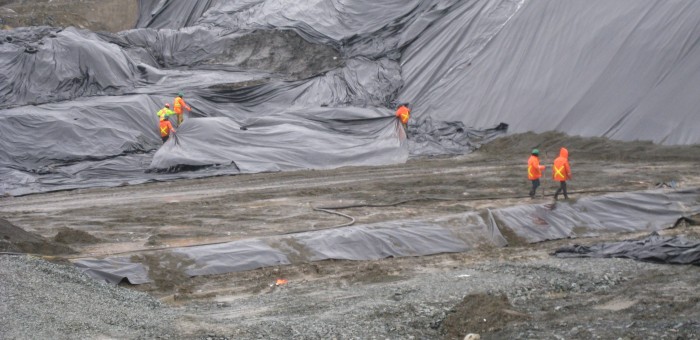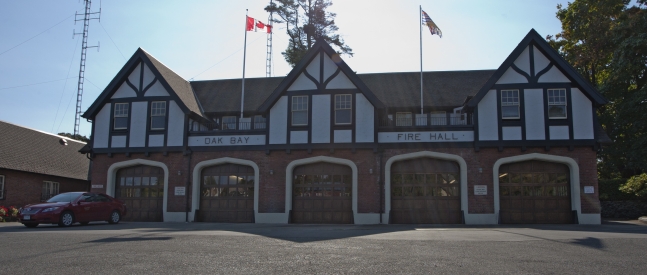Issues & Community Blog - Andrew Weaver: A Climate for Hope - Page 139
The Monumental Failure of BC Liberal’s LNG Hyperbole — What’s Plan B?
Today in the legislature during Question Period I rose to quiz the government on its irresponsible and misleading claims concerning our LNG potential. I’ve been pointing out the same thing for three years. An LNG industry in BC is not going to be an economic reality any time soon — the numbers just don’t add up. Yet during this time the BC Liberals have given us three years of hot air and broken promises. Franky, the LNG Emperor has no clothes and it’s time that British Columbians are told the truth.
As I pointed out two weeks ago, Goldman Sachs has forecast a 13 percent drop in LNG prices in 2017 and a further 23 percent drop by 2018. And the U.S. starts shipping LNG in January of 2016. The forecast spot price in Japan is $6.13 in 2016, compared to $7.49 now. Goldman Sachs has projected a $5.19 spot price for landed LNG in Japan in 2017 and a $4.75 spot price in Japan for 2018. It’s looking more and more like British Columbianas will have to literally pay people to take our gas.
During Question Period, I posed two questions to the Minister of Natural Gas Development. Frankly, in my view, his answers were shocking. But I will let you be the judge.
As a direct response to the absurd responses I received, immediately after question period I stood and moved that the house proceed to an emergency debate pursuant to Standing Order 35 on a plan for B.C.’s economy in light of the monumental failure of this government’s plan for LNG and the urgent need to transition to a low-carbon economy. I am grateful for the support of the BC NDP in my attempt to stimulate such a debate. The government argued such a debate was not needed and in the end, the speaker ruled on the side of the government.
Below I reproduce the Question Period exchange. I also provide the video and text of the discussions as to whether or not we should have the emergency debate.
Video of Question Period Exchange
Question
A. Weaver: In the lead-up to the last election, British Columbians were sold a bill of goods by this government. The promise of 100,000 jobs, a $100 billion prosperity fund, a $1 trillion hit to GDP, a debt-free B.C. and on and on.
This government has spent the last three years touting B.C.’s imminent LNG industrial boom. They sent a signal to the market that if industry wanted to do business in B.C., it had better have something to do with LNG.
We were summoned for an urgent summer session of the Legislature to debate the project development agreement for Petronas’ LNG proposal, yet the months continue to pass. The global market supply of gas gets bigger and bigger. Company after company move on to other jurisdictions, and this government remains silent about a plan B.
My question to the minister is this: given the monumental failure of this government’s plans for LNG, what is plan B for the B.C. economy?
Answer
Hon. R. Coleman: I’ve only got two minutes?
Madame Speaker: Please proceed.
Hon. R. Coleman: The only monumental failure in this House is that member’s inability to understand how important natural gas could be to the GHGs in the world sent from British Columbia.
Let’s give the member a little recap. We have a conditional FID. We have a project development agreement and one major project in Prince Rupert. We have environmental assessment certificates on three or four additional projects. We have 20 proposals in British Columbia for LNG, opportunities in B.C. Just yesterday, hon. Member, I was at Tilbury where they’re actually building a tank and expanding the Tilbury operation for Fortis for LNG to go into places like Hawaii. At the same time….
I know the member has an issue with First Nations having opportunities and changing their lives and the opportunity of a generation about LNG. But just yesterday the Tsawwassen First Nation announced that they’re going to do a referendum on accepting a proposal from a company, Mitsui, to put an LNG plant on their property in Tsawwassen for the future of their community.
We have 28 pipeline benefit agreements across the north for communities of First Nations, who will see an opportunity for trades, opportunities and a change in the lives of their young people, an opportunity for jobs.
We are moving forward with LNG. I know it drives the member crazy but that’s the way it is, hon. Member.
Supplementary Question
A. Weaver: Well, I think we should change the name of the ministry to the ministry of gas and hot air, based on that speech.
In just two short weeks, leaders from around the world will descend on Paris to attend the 21st Conference of the Parties to the United Nations framework convention on climate change. Next week the Premier will attend a first ministers meeting in Ottawa to come up with a national strategy prior to Paris.
Yet our government’s promise of wealth and prosperity from a hypothetical LNG industry is entirely inconsistent with a B.C. — let alone a national — strategy to reduce green house gas emissions. What will the government do today to invest in B.C.’s economy in light of the monumental failure of its LNG plans and the urgent need to transform to a low-carbon economy consistent with international efforts?
Answer
Hon. R. Coleman: Maybe the member ought to do a little bit of research. I know he thinks he’s an expert on this, but maybe he should go to China and see just how bad the air is and know that the cleanest-burning fossil fuel in the world can actually change the lives and health outcomes for hundreds of millions of people.
If he did, he would recognize that the world needs a transition fuel to reduce pollution, reduce GHGs in the atmosphere, take the particulates out of the air, give people better health outcomes. At the same time, while doing that, help the economy in British Columbia to improve the lives Asia, by bringing LNG from British Columbia to Asia to help them deal with a significant problem — at the same time, getting the maximum benefit from a resource that British Columbians have every right to get the benefit from.
Text of Request for Emergency Debate
A. Weaver: Again, I rise pursuant to Standing Order 35. As advised in Standing Order 35, I gave the Chair advance notice, and I’ve provided a written statement of the matter proposed to the Clerk.
By leave, I move that the House do now adjourn to discuss a matter of urgent public importance — namely, a debate concerning an economic backup plan for British Columbia given the complete collapse of this government’s all-in strategy on LNG and the urgent need to transition to a low-carbon economy.
This government spent the last three years touting B.C.’s imminent LNG industrial boom. They sent a signal to the market that if you wanted to do business here in B.C., it had to be something to do with LNG. Clearly, not the signal that many sectors wanted to hear.
From the answers in question period, it’s clear that government has no plan B. It’s clear that they have no climate strategy. Frankly, it’s clear that they’re rudderless.
As legislators, we have a duty to the people of British Columbia to urgently turn our attention towards a debate for plan B for B.C.’s economy prior to next week’s first ministers’ meeting in Ottawa and the upcoming UNFCCC meeting in Paris.
As section 35 demands, there is no other time in this session to debate such a plan for B.C.’s economy in light of the monumental failure of this government’s plan for LNG and the urgent need to transition to a low-carbon economy.
Hon. M. de Jong: I’m also obliged to the member for having not only provided the Chair but having provided me with advanced copy of his comments, which I should say bear a striking similarity to his comments in question period. That is not altogether insignificant, because one of the issues….
I must say that I am sorely tempted, given the nature of the subject advanced, to suggest that the House accommodate the member. But I am obliged to point out that the rules governing the application of Standing Order 35 are very strict and very specific, and that is for good reason.
The urgency of debate and the opportunity for debate. The member has just indirectly alluded, on this particular issue, to the opportunity that has existed in this chamber to make submissions on this very point. He did so mere moments ago in his participation in question period.
His remarks provided me with the opportunity to go back and review what he had to say earlier in this chamber, in September, in a debate that took place around energy matters, and again, I applaud him for his consistency, and I point out that I remain unconvinced about his approach and his arguments.
Nonetheless, the more important feature is that there has been ample opportunity. It is the urgency of debate, not the urgency of the matter itself. For that reason alone, I would suggest that the member in his submission to the Chair has failed to make the case for invoking section 35.
M. Farnworth: Just following on the Government House Leader’s comments, I know when this issue was raised back earlier in the summer session, the official opposition indicated that it would be supportive of a debate around the climate change and the conference in Paris.
That still remains our position. So if it was the Speaker’s view that, in fact, the motion moved by the member from Oak Bay, we would be supportive of the ability to have that debate.
Video of Request for Emergency Debate
We wonder whether “wilful” was willingly and wilfully worded wisely
Today we very quickly moved through committee stage of Bill 37, the Miscellaneous Statutes Amendment Act, (No. 2), 2015 (what I’ve called the Comma and Spellchecker Act). This bill simply corrected a few commas, a bracket that shouldn’t have been italicized, and a couple of spelling mistakes. I spoke to this bill earlier at second reading, Today, during committee stage I had but one question. Why are we only checking the spelling of willful in a couple of bills and not all of them?
Below are the text and video of the question together with the Minister’s response.
Video of Exchange
Text of Exchange
A. Weaver: I’ve got one question, and the question is with respect to: why these changes? Why I say that is I recognize the importance of changing the spelling of “willful” and doing it through legislation, as we are here.
But as I outlined in second reading, the Community Charter, Insurance Premium Tax Act, the Local Government Act, the Logging Tax Act, the Maa-nulth First Nations Final Agreement Act, the Mineral Tax Act, the Motor Fuel Tax Act, the Perpetuity Act — I don’t even know what some of these are — the Personal Property Security Act, the Property Transfer Tax Act, Railway Act, Tobacco Tax Act and on and on also have “wilful” spelt differently.
My question to the minister is this: Why do we selectively correct the spelling of “wilful” in some — the School Act, I reckon, is important — and not in other acts. Surely, in doing this, we would do a global search of how wilful is spelt and change all occurrences of wilful to be consistent across acts so that we’re not introducing more of these spell-checker acts wilfully.
Hon. S. Anton: The spelling of the word wilfully does occur in different acts and it’s spelled differently, as the member has pointed out. I’m glad that he has time to look up these things.
The issue in the Tobacco Tax Act is that it was spelled differently in the same act. The act was under consideration for other reasons, so it was thought an opportune time to correct it so at least the act itself was internally consistent.
Every time there’s a correction, it does require consultation. These mistakes are found, but you still have to go out to the ministry and make sure that they’re good with it and do all the proper dotting of the i’s and crossing of the t’s, so to speak, typographically. This was an opportune one to do right now. There may be others brought forward in the future, and that will be a matter of discretion as we move forward.
Bill 41 — Miscellaneous Statutes Amendment Act (No. 3), 2015
Today in the legislature I rose to speak at second reading on Bill 41, Miscellaneous Statutes Amendment Act (No. 3), 2015. Bill 41 proposed amendments in four general areas:
- Advanced Education
- Children and Family Development
- Energy and Mines
- Justice amendments
I generally spoke in favour of the amendments with notable caveats that I will explore further tomorrow at Committee stage. Below are the text and video of my speech.
Text of my Speech
A. Weaver: I rise to speak to Bill 41, Miscellaneous Statutes Amendment Act (No. 3), 2015. It’s another one of the miscellaneous statutes acts, this one with amendments in four different areas — the first, of course, being Advanced Education amendments that my colleague from Victoria–Swan Lake discussed recently. Part 2 is Children and Family Development amendments; part 3, Energy and Mines amendments, specifically with respect to BCUC; and part 4, Justice amendments.
This bill actually covers a rather large number of bills within the four categories: the Child, Family and Community Service Act; the College and Institute Act; the University Act; the Interjurisdictional Support Orders Act; and the Utilities Commission Act.
The amendments clarify a few definitions and generally expand regulatory and exemption powers for the Lieutenant-Governor-in-Council or, in the case of the Utilities Commission Act, the minister assigned in the place of the Lieutenant-Governor-in-Council. This amendment bill seems to follow a pattern of a rather large number of these bills we’ve seen this year where the legislation is made somewhat increasingly vague and left up, often, to the discretion of the appointed minister or regulator.
With respect to the Child, Family and Community Service Act, the amendments are said to enable the expansion of the agreements with young adults program, allowing the Ministry of Children and Family Development to extend the duration of agreements and raise the age limit. Now, this is important. This is an important piece of legislation that is dealing with the transition of youth from the ages of 18 to 19 who often fall between the cracks as they move from being a child to an adult. Being able to allow the…. The amendment will allow and enable agreements to be used for life skills programs, in addition to the current educational, vocational and rehabilitation programs, meaning that children will be able to transition better.
I was speaking this last Saturday with an RCMP officer from the Victoria region, out on the West Shore, who said that the single most common call they get are calls with respect to adolescent mental health issues. Now, part of the problem, of course, is that these adolescents who move into adulthood fall between the cracks after they age out. This legislation allows ministries to actually coordinate — extend the coverage — under Children and Family Development, and it’s a very fine piece of legislation that I’m very proud to support.
On the same note, the changes to the Interjurisdictional Support Orders Act add further amendments that I’m very pleased to support. In particular, the changes will allow for child and spousal support decisions from other provinces and territories and countries to be more efficiently processed. The administrative changes will allow support order decisions from jurisdictions that do not provide court-certified copies of decisions, such those reached by tribunal, to be registered with the B.C. court. In addition, instead of using the court sheriff services to serve applications for support from other jurisdictions, the director of maintenance enforcement will now use a private process server.
Out-of-province support orders are often hard to collect and said to account for about 11 percent of family maintenance enforcement program cases. So again, an important piece of legislation within the broader Miscellaneous Statutes Amendment Act.
Then we move to the Utilities Commission Act changes. Now, the member for Vancouver-Kingsway — I believe it was Vancouver-Kingsway — gave a very eloquent and fine analysis of the changes to the Utilities Commission Act, in particular how it affects BCUC. The changes include…. They’re being told to implement recommendations from the BCUC — British Columbia Utilities Commission — Core Review Task Force. That task force was initiated by government in 2014 in responses to concerns raised by customer groups and utilities about BCUC’s capacity to deliver clear and timely decisions.
The proposed legislative amendments are said to increase the BCUC’s effectiveness and efficiency and reduce the cost of regulation for ratepayers, who pay for BCUC in their utility raise. It all sounds fine at face value, but in terms of the implementation, what’s being proposed is that the amendments really seem to focus on increasing power and exemption abilities of the minister.
Now, while some ratepayer groups consulted during the core review are said to support these changes, it’s a disturbing trend that we’re seeing more and more often within this government’s legislation: to put more and more power in the hands of fewer and fewer and ask British Columbians to trust us. As we saw earlier today, there are times when “trust us” simply is not good enough.
The final component of this Miscellaneous Statutes Amendment Act is with respect to changes to the College and Institute Act and the University Act. As I mentioned, my colleague from Vancouver–Swan Lake did a fine job outlining some of the…
Interjection.
A. Weaver: Did I say Vancouver–Swan Lake?
With humble apologies to the member from Victoria-Quilchena, the member for Victoria–Swan Lake outlined some of the issues that some university student groups have felt concern on. The amendments here to both the University Act and the College and Institute Act make adjustments to how fees are collected, or can be collected, from people who leave student societies. The Minister of Advanced Education says he will consult with student societies to determine which program or service fees should be protected under legislation.
I understand why this legislation was brought in. With the recent passage of the Societies Act, we were left with a rather concerning gap in legislation, which led to questions as to what would happen to the fees if students pulled out of the student societies. I recognize that the minister, in consultation with a variety of student groups, put forward the amendments that we see before us today in both the order papers as well as in the original act.
There has been some concern that too much power will be granted to the minister to determine what is or is not considered a fee. It’s something that…. Rather than pass judgment on it at this particular junction, I will ask for some specific examples during committee stage, to get on record a certain number of these examples to see whether or not this is what the minister believes to be considered as student fees or student charges.
As the member for Victoria–Swan Lake…. The UVic Students Society has been quite vocal about their concerns with this specific piece of legislation. They knew that changes regarding fees levied against those who leave the student society were coming. They were concerned. They did not expect the format that the government used to bring these changes in to be the one we see today. In fairness to the minister who brought in the changes, it’s not clear to me, in the time frame that the minister had, that it was able to, under the same umbrella, bring all potential types and qualifiers and identify all those that would be viewed to be student fees now. The minister has committed to engaging student groups in the future to discuss this.
Nevertheless, it has left an element of uncertainty. When there’s uncertainty, there’s concern, because student groups — not only the University of Victoria and others — believe that they are being asked to trust us once again.
I will say that the student group at the University of British Columbia seemed to be more supportive of the changes as put in, although they, too, note the irony of almost a catch-22 being in place. I don’t think it’s fair, but a catch-22 is in place, where they say that the Societies Act seems to imply, quite logically, that only members of a society can cast votes on society business.
Yet there is an administrative problem, because students who resign their membership must continue to pay student fees. The bill specifies that these students must also continue to have voting rights. That seems to be in conflict with the Societies Act. But, as I will outline, there are ways around this, which brings me to a comment. I’m concerned that, in fact…. Ironically, in light of the amount of time we’ve spent during this session discussing red-tape reduction, it seems to me that one of the consequences of this amendment is a rather substantive increase in red tape to be applied to student organizations in British Columbia.
The bill separates the fees that students face into multiple, regulation-dependent categories, which may operate in different ways. There are a number of issues that I can think of that need to be addressed in the committee stage, as I mentioned, that I’ll cover later. But first, this bill creates the so-called red tape for student societies that I alluded to earlier as follows.
Previously, a simple annual vote took place. Annually, students would vote. That vote took place to elect a student board and was used to pass any new funding. The student board would be elected. New funding would be approved or not approved by a referendum, and it would be done with all students who are members of the student union or society voting.
However, the bill appears to morph this process into a far more convoluted red-tape process. I should have worn some red tape over my suit here today. Student societies must now account for a new category of students who will cast ballots on funding referendums and not on the student election.
This strikes me as odd — that you’ll have various groups of students voting on various things, in light of the fact that student turnout at the best of times is not as high as it could be. They already suffer from limited turnout in many universities around the province, let alone making this much more complicated and having different categories of students being able to vote for something or against something.
Secondly, the bill confers, I would argue, unnecessary powers to the minister to decide which fees apply in which ways. Now again, I recognize that this probably was left as a matter of regulation in light of the timeliness of trying to get something passed this session so that student groups collecting fees from students who secede from the union or society that represents them would be in place sooner than later. I recognize that.
However, there are questions that we can explore at committee stage, and they’ll follow along these lines. In general, there’s an issue with the increased reliance on regulation to set policy. However, in that case, there should be a simple remedy. Consult with student unions about the specific fees they levy and draft the legislation accordingly.
Again, we are told that the regulations will come in place through consultation with the student groups. Again, as I’ve argued earlier and pointed out, some of these student groups more so than others feel that they’re being asked to trust the government. Depending on the various student groups, some will trust them more than others.
Interjection.
A. Weaver: The minister, of course, is suggesting that we should all trust government. Well, as I mentioned earlier, trusting government in many cases is simply not good enough. We don’t have to reiterate the example we heard today during question period and the resolution I brought forward for emergency debate on the Shawnigan Lake situation.
The change, as I mentioned, also appears to allow the government to decide which fees are appropriate. That, again, could potentially limit the union’s or society’s ability to challenge government decisions it doesn’t support.
Let’s suppose, hypothetically, that the university of somewhere in B.C. decides to form…. Through referendum, the students decide that they want to put a group there, a union. Their union, through the fees, have decided a club is going to be formed. It’s going to be the “We have to get the Liberals out in 2017” club.
Now, that’s a fee that has been approved by referendum, and students then…. Maybe one or two in the university who don’t agree with that pull out of the student society. The decision as to whether or not that fee that was elected democratically…. Whether or not the students who pull out can actually take their payment of the fees with them is left up to the minister to decide.
Clearly, there is a potential conflict there. There’s a potential question as to whether or not the minister will or will not support. I gave a rather crass example. But we could actually move a little closer to where it’s not so clear. Obviously, all of British Columbia has sincere trust in the present Minister of Advanced Education to do absolutely no wrong at any time. Let’s suppose, hypothetically, that there were a minister who ideologically did not believe that men could be with other men and marry other men, and that therefore that minister…. I’m sure there are many of them in this government who feel that way strongly. Perhaps they are in a position of decision-making.
They, then, could decide: “You know what? These fees are not allowable.” Hence the concern of some student groups over others. Now, as I pointed out, this clearly would not happen in British Columbia with the esteemed leadership of the Minister of Advanced Education, also representing Vancouver-Quilchena. But there may be other ministers, at some point in the future, who will be less trustworthy.
Finally, I will say that much of this I’m going to try to deal with in committee stage, by providing specific examples of specific clubs that do exist already in some universities, and see whether or not the fees to these clubs were the types of fees that the minister was thinking are allowable to actually be passed on as a direct cost back to the students union if the students pull out of the union or the society that represented them.
With that, I thank you for your time.
Video of my Speech
Appealing for Emergency Debate on Contaminated Soils in Shawnigan Watershed
Today in the Legislature I rose, pursuant to Standing Order 35, to call for an emergency debate on the recent failure of the contaminated soil site storm water containment and clarification system at the South Island Aggregates/Cobble Hill Holding/South Island Resource Management operations.
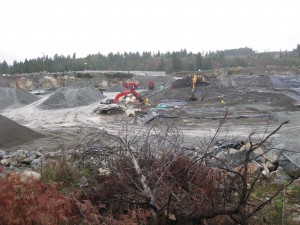 There are two active cases before the BC Supreme Court concerning the process that led to the granting of the permits by the Ministry of Environment. The CVRD is seeking to have its land-use bylaws upheld, as this is not a permitted land use for this location. The Shawnigan Residents Association has filed a Judicial Review of the decision by the Environmental Appeal Board to uphold the permit, and they have brought forward new and very important information that was not considered by the Environmental Appeal Board. Local residents are desperate to protect their water supply, and last week two people were arrested outside of the site.
There are two active cases before the BC Supreme Court concerning the process that led to the granting of the permits by the Ministry of Environment. The CVRD is seeking to have its land-use bylaws upheld, as this is not a permitted land use for this location. The Shawnigan Residents Association has filed a Judicial Review of the decision by the Environmental Appeal Board to uphold the permit, and they have brought forward new and very important information that was not considered by the Environmental Appeal Board. Local residents are desperate to protect their water supply, and last week two people were arrested outside of the site.
Below I offer an extract from Hansard where I provide rationale for why I believed that holding such a debate was of urgent public importance. Please note that in a postscript below I reproduce the Speaker’s ruling.
Text of my Rationale
A. Weaver: I rise pursuant to Standing Order 35. As advised in Standing Order 35, I gave the Chair notice, and I have provided a written statement of the matter proposed to the Clerk.
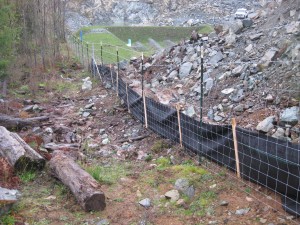 By leave, I move that this House do now adjourn to discuss a matter of urgent public importance — namely, an emergency debate concerning the recent failure of the contaminated soil site stormwater containment and clarification system at the South Island Aggregates — Cobble Hill Holdings — South Island Resource Management operations.
By leave, I move that this House do now adjourn to discuss a matter of urgent public importance — namely, an emergency debate concerning the recent failure of the contaminated soil site stormwater containment and clarification system at the South Island Aggregates — Cobble Hill Holdings — South Island Resource Management operations.
There were, in the past few days, at least two documented breaches of water bypassing the system into the Shawnigan potable water stream network. On November 13, Island Health issued a no-water use advisory “advising residents not to use water taken out of the lake from the south end of Lake Shawnigan, south of Butler Avenue and Verlon Road, due to suspected overflow of water from South Island Aggregates’ site.” This means that residents were being advised “not to use or draw water from the area of the lake for residential or commercial use, including bathing, personal hygiene, drinking and food preparation.”
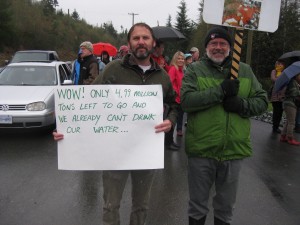 This morning I visited the area today to witness many scores of residents of Shawnigan Lake standing along the roadside desperately seeking government action. Despite the fact that members opposite think this is a joke, I walked around the facility this morning, and there is water running off that facility today in violation of the permits that they have been granted. Yet we have the side opposite thinking this is somehow a big joke.
This morning I visited the area today to witness many scores of residents of Shawnigan Lake standing along the roadside desperately seeking government action. Despite the fact that members opposite think this is a joke, I walked around the facility this morning, and there is water running off that facility today in violation of the permits that they have been granted. Yet we have the side opposite thinking this is somehow a big joke.
Last week a steady stream of trucks brought in high-sulfur soils, further contaminated with hydrocarbons from the metallurgical coal activities that occurred at Pacific Coast Terminals in Port Moody. Five thousand people draw their drinking water from this lake, and 12,000 people live within the region.
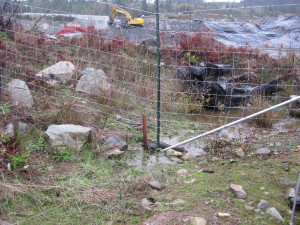 There are several court cases before that we will obviously not have time but could explore in debate, and local residents have documented many cases of non-compliance. And as of this morning, the Island Health water advisory remains in place.
There are several court cases before that we will obviously not have time but could explore in debate, and local residents have documented many cases of non-compliance. And as of this morning, the Island Health water advisory remains in place.
As should be clear, the need for this debate is urgent. Trucks are not delivering sediments today but will start again tomorrow. British Columbians are facing very real health impacts from a decision this government has made, and there has not been and will not be an opportunity for this issue to be debated appropriately other than within the scope of Standing Order 35.
Video
Postcript
Today the government house leader, Honourable M. de Jong spoke against having such an emergency debate by saying:
“I also, in fairness to the member, indicated that I would review his remarks from last day with respect to yesterday’s application for an emergency debate and will only say this: again, by virtue of the rules and precedents that apply around the application of section 35, I don’t believe the required threshold has been met in the submission made to the House, and thereto the application to invoke Standing Order 35 should, in my respectful opinion, be declined.”
The NDP neither supported nor opposed the emergency debate.
The Speaker subsequently ruled against having the debate.
Appreciation for Oak Bay Emergency Services
This evening I had the distinct honour of attending the Oak Bay Emergency Services Appreciation Banquet. I had the opportunity to extend deep appreciation and respect for the daily efforts and dedication of Oak Bay’s emergency services towards the health, safety and betterment of our community.
Text of my remarks
Good evening and thank you for the kind invitation for Helen and me to attend tonight’s banquet. We are honoured to be here with you.
Please let me join others here in thanking you, Oak Bay’s emergency service members, for your dedicated, professional and selfless service to our community — for being there in our times of need.
I am pleased to be here tonight to honour the work you do in the service of others. As citizens, we are reassured in knowing that you are there and ready to help us when needed. Dave Carroll’s song in the video (also shown below) we just watched says it all — you are everyday heroes. To quote from the lyrics:
When people in the world need savin’
The saviours who answer the call
Don’t get paid anymore for danger
Or get to pick the one’s they want
They just go to where the few will go
To maybe lay it all on the line
Just to do their job, do it one more time
Many of us may only have brief contact with you in the course of our lives, but the work you do has life-long impact on so many that you serve in the community.
You encounter and witness events in the course of your work that most of us will never see. I’m sure you sometimes wish some things could be unseen, but that is not your reality. There is often a heavy price to pay for your work – with shift work, emergency call-outs, interrupted family life and the inherent danger you face in the course of your duties. You are often dealing with emotionally difficult and highly intense situations. Instead of running from danger, you run courageously towards it and focus on the job you are trained to do.
To quote from Franklin D. Roosevelt: “Courage is not the absence of fear, but rather the assessment that something else is more important than fear”.
We are also very appreciative for all the work that you do to support our community. We see you at numerous community events, you fundraise for charity and undertake important liaison work in the schools and through education in the areas of prevention and safety.
Helen and I would like to extend our deep appreciation and respect for your daily efforts and dedication towards the health, safety and betterment of our community.




